Lawmaker Oluwole Oke Joins APC, Cites Development Goals and Tinubu’s Renewed Hope Agenda In a strategic political shift aimed at enhancing development in his constituency, a long-serving member of the House of Representatives, Mr. Oluwole Oke, has officially defected from the Peoples Democratic Party (PDP) to the All Progressives Congress (APC). The lawmaker, who represents
Lawmaker Oluwole Oke Joins APC, Cites Development Goals and Tinubu’s Renewed Hope Agenda

In a strategic political shift aimed at enhancing development in his constituency, a long-serving member of the House of Representatives, Mr. Oluwole Oke, has officially defected from the Peoples Democratic Party (PDP) to the All Progressives Congress (APC). The lawmaker, who represents Oriade/Obokun Federal Constituency in Osun State, said his decision was informed by a desire to better serve his constituents and align with President Bola Tinubu’s “Renewed Hope” development vision.
Oke, a seasoned politician and current Chairman of the House Committee on Foreign Affairs, made the announcement public two weeks ago, ending a long affiliation with the PDP. In a recent interview, he stated that his defection was a pragmatic step toward fostering infrastructural growth and empowering the grassroots.
“I decided to join the All Progressives Congress to enable me to actualise my passion of empowering the people and influence infrastructural development and welfare of the people in my constituency,” Oke said.
Former CPC Chairmen Reaffirm Loyalty To Buhari, Urge APC Unity Ahead Of 2027 Elections
Commitment to Development and Unity
A veteran of the National Assembly, Oke was first elected to the House of Representatives in 1999 and retained his seat in 2003 and 2007 before a brief hiatus in 2011. He returned to the Green Chamber in 2015 and has remained a notable figure in Nigeria’s legislative space.
Oke’s defection signals a shift in the political dynamics of Osun State and the South-West geopolitical zone. According to him, the move was also intended to end political hostilities with President Bola Tinubu and create room for collaboration in national development initiatives.
“I will be ready to contribute my own quota for the progress of the Renewed Hope agenda of the President for the betterment of a greater number of Nigerians across the length and breadth of the country,” he added.
The “Renewed Hope” agenda, the policy cornerstone of the Tinubu administration, focuses on infrastructure expansion, economic revitalisation, and inclusive governance. Oke says these priorities closely align with his legislative goals, especially for the largely rural and underserved areas of Oriade and Obokun.
“Equity, Fairness and Justice” as Guiding Principles
Beyond the strategic benefits of aligning with the ruling party, Oke emphasised the importance of upholding democratic values in his political journey. He reiterated that fairness, inclusivity, and justice would remain the cornerstones of his engagements within the APC.
“In pursuing our agenda, we will let equity, fairness and justice be our guiding principles,” he noted, signaling a desire for unity and cooperation amid Nigeria’s often divisive political climate.
Oke had previously criticised the PDP-led Osun State government under Governor Ademola Adeleke for alleged marginalisation of his constituency. He described the Oriade/Obokun area as the “food basket” of Osun State and argued that it had not received a fair share of the state’s developmental attention.
Political Ripple Effects and PDP’s Dismissal
Since the defection, there has been a flurry of political activity in Osun State. Reports indicate that several stakeholders from the PDP, particularly from the Ijebu North axis, have followed Oke in switching allegiance to the APC. The mass defection suggests a potential shift in voter sentiment ahead of future elections, especially as grassroots support plays a decisive role in Osun politics.
However, the Osun State chapter of the PDP has sought to downplay the significance of Oke’s exit. Party leaders have described his defection as “inconsequential,” arguing that the PDP remains the dominant force in the state’s political terrain.
Despite the dismissal, analysts say Oke’s move could pose a challenge to the PDP’s structure in the state, particularly given his long-standing grassroots appeal and established political network. With more than two decades of legislative experience, Oke is regarded as a powerful mobiliser with influence that extends beyond his immediate constituency.
Strategic Realignment Ahead of 2027
Oke’s switch to the APC comes at a time when political realignments are becoming more pronounced ahead of the 2027 general elections. As lawmakers and political leaders across party lines reassess their alliances, the move to join the ruling party could position him for greater leverage in legislative and developmental initiatives.
Observers suggest that Oke’s alignment with Tinubu’s government may offer opportunities for federal projects and increased influence in policymaking, especially through his role in the House Committee on Foreign Affairs.
In an era where party loyalty often takes a backseat to pragmatic governance goals, Oke’s defection is viewed by some as a calculated move to deliver tangible results to his constituency. Others, however, remain skeptical, questioning whether political rebranding alone will translate into meaningful development.
A New Political Chapter
While his former party continues to downplay the impact of his defection, Oluwole Oke’s move to the APC marks a significant chapter in his political journey. As he navigates the corridors of power from a new platform, his ability to champion infrastructure, education, and economic growth in his constituency will be closely watched.
Whether this shift proves beneficial for the people of Oriade/Obokun and for Oke’s political career will depend largely on how effectively he leverages his new platform within the APC to bring development home.


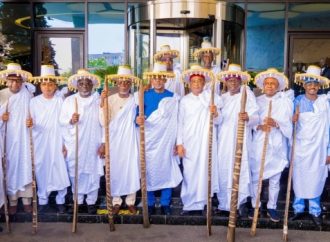

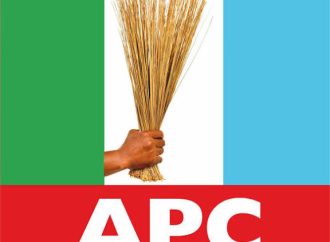
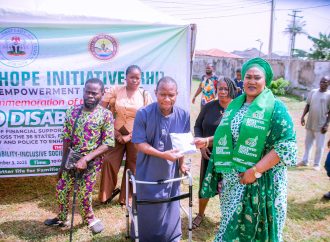
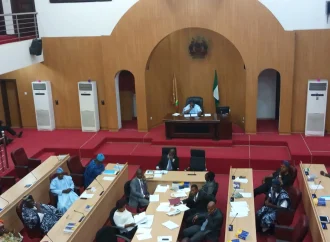



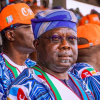







Leave a Comment
Your email address will not be published. Required fields are marked with *